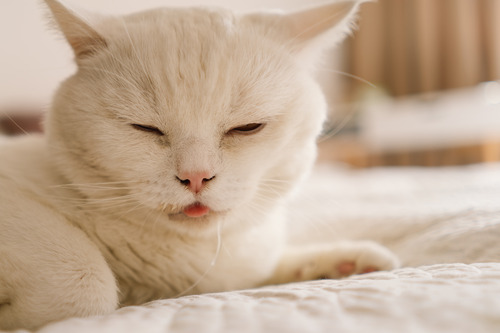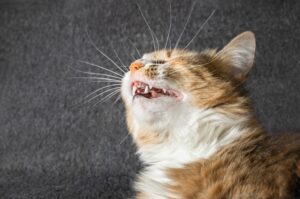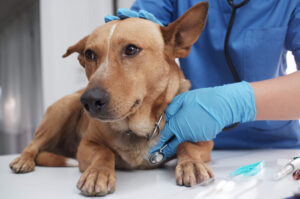When you notice your cat drooling and not eating, it can be a worrying sign. These symptoms often point to dental issues, a common concern among felines. At Loveland Regional Animal Hospital in Loveland, OH, we frequently encounter pet parents facing this troubling scenario. Here we aim to shed light on why your cat might be exhibiting these symptoms and the importance of professional veterinary care. If you’re concerned about your cat’s health, don’t hesitate to call us at (513) 697-9796 for guidance or to schedule an appointment.
Identifying Feline Dental Problems
Feline dental health is more than just a matter of fresh breath. It’s integral to their overall wellbeing. When a cat experiences dental issues, it can lead to drooling and loss of appetite. These are signs that your cat might be in pain or discomfort. Dental problems in cats can range from tartar buildup to more serious conditions like periodontal disease. It’s vital to recognize these signs early and consult with a veterinarian.
Common Causes of Cat Drooling and Not Eating
Cats may drool and avoid eating for several reasons, ranging from minor to serious. Some of the common causes include:
- Dental Disease: Gum disease and tooth decay can lead to discomfort and pain, causing your cat to drool and shy away from eating.
- Oral Injuries or Ulcers: Cuts or ulcers in the mouth can be painful, leading to excessive drooling and a reluctance to eat.
- Foreign Objects: Sometimes, objects stuck in the teeth or throat can cause drooling and difficulty eating.
- Stress or Anxiety: Cats may drool and lose their appetite due to stress or changes in their environment.
- Underlying Medical Conditions: Conditions like kidney disease, diabetes, or respiratory infections can also cause these symptoms.
The Role of Professional Veterinary Care
Self-diagnosing your cat’s dental issues or attempting home treatments can be risky and may worsen their condition. At Loveland Regional Animal Hospital, we use state-of-the-art diagnostic tools to accurately identify the problem. Our experienced veterinary team will provide a tailored treatment plan, which may include professional pet dental cleaning, medication, or even surgery in severe cases. Remember, timely and professional care is key to your cat’s recovery.
Preventing Dental Issues
Dental problems related to cat drooling can be prevented with the proper care including:
- Regular Dental Check-Ups: Schedule yearly dental check-ups with your vet.
- Teeth Cleaning Routine: Brush your cat’s teeth regularly with cat-specific toothpaste.
- Dental-Friendly Diet: Feed your cat a diet that promotes dental health.
- Dental Treats and Toys: Use treats and toys designed to reduce tartar and plaque.
- Monitor for Changes: Keep an eye out for any changes in your cat’s eating habits or mouth.
When to Contact Your Veterinarian
If your cat is drooling and not eating, it’s crucial to contact a veterinarian promptly. These symptoms can escalate quickly, leading to more severe health issues. Our team at Loveland Regional Animal Hospital is ready to assist you. Don’t hesitate to call us at (513) 697-9796 if you notice any concerning symptoms in your cat. Early intervention can make a significant difference in their recovery and overall health.





